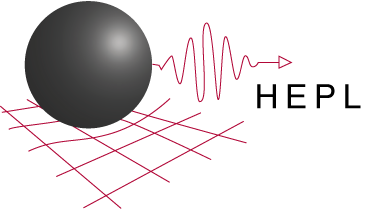News & Events
HEPL-KIPAC Seminar
Dr. Ke-Xun Sun
Senior Research Scientist
Stanford
"Modular Gravitational Reference Sensor (MGRS): Conception and Technologies"
Abstract: Gravitation wave detection will be at the frontier of space science and technology in the coming decades, as represented by LISA, BBO and DECIGO. The Modular Gravitational Reference Sensor (MGRS) is targeted as a future core instrument for both space gravitational wave detection and an array of other precision time-positioning experiments. MGRS architecture separates the internal optical readout of the proof mass position and the external interferometry between the spacecraft, and enables independent optimization of both. All reflective gratings are used to further simplify the optical configurations. MGRS has made important impact to LISA. In building MGRS, we have been developing several technologies, such as several optical sensing techniques with complementary sensitivity and dynamic range, UV LED charge management, grating angular sensor, and two-layer sensing and control. We will present the conception process of MGRS, review the technology developments, and give a future perspective.
Bio: Ke-Xun Sun graduated with a Ph.D in physics from MIT. During his postdoc at Stanford, he worked on all reflective and Sagnac interferometers. He then had fun in the industry on telecommunication and diversified topics. Returned to Stanford in 2003, he initiated the concepts and led the technology development of MGRS, grating cavity optical sensors, grating angular sensor, differential optical shadow sensing, and UV LED AC charge management. He has been working with many graduate, undergraduate, and high school students. He is now a Senior Research Scientist, and the MGRS Technology Manager. Concurrently, he is a Senior Scientist at DOE complex at Livermore . He is also a licensed Professional Engineer in Electrical Engineering.
Location: Physics Astrophysics Building, Conference Rooms 102/103
Wednesday, March 11 , 2009 , 4:00pm -5:30pm
Light refreshments available 4:00pm; Presentation begins 4:15pm. Open to all.
Join our HEPL Seminar Mailing list!
Send an email to majordomo@lists.stanford.edu and type
subscribe heplseminars user@stanford.edu
in the body of the message where user@stanford.edu is your email address
You will receive an email confirmation. We hope to see you at a HEPL Seminar soon.


